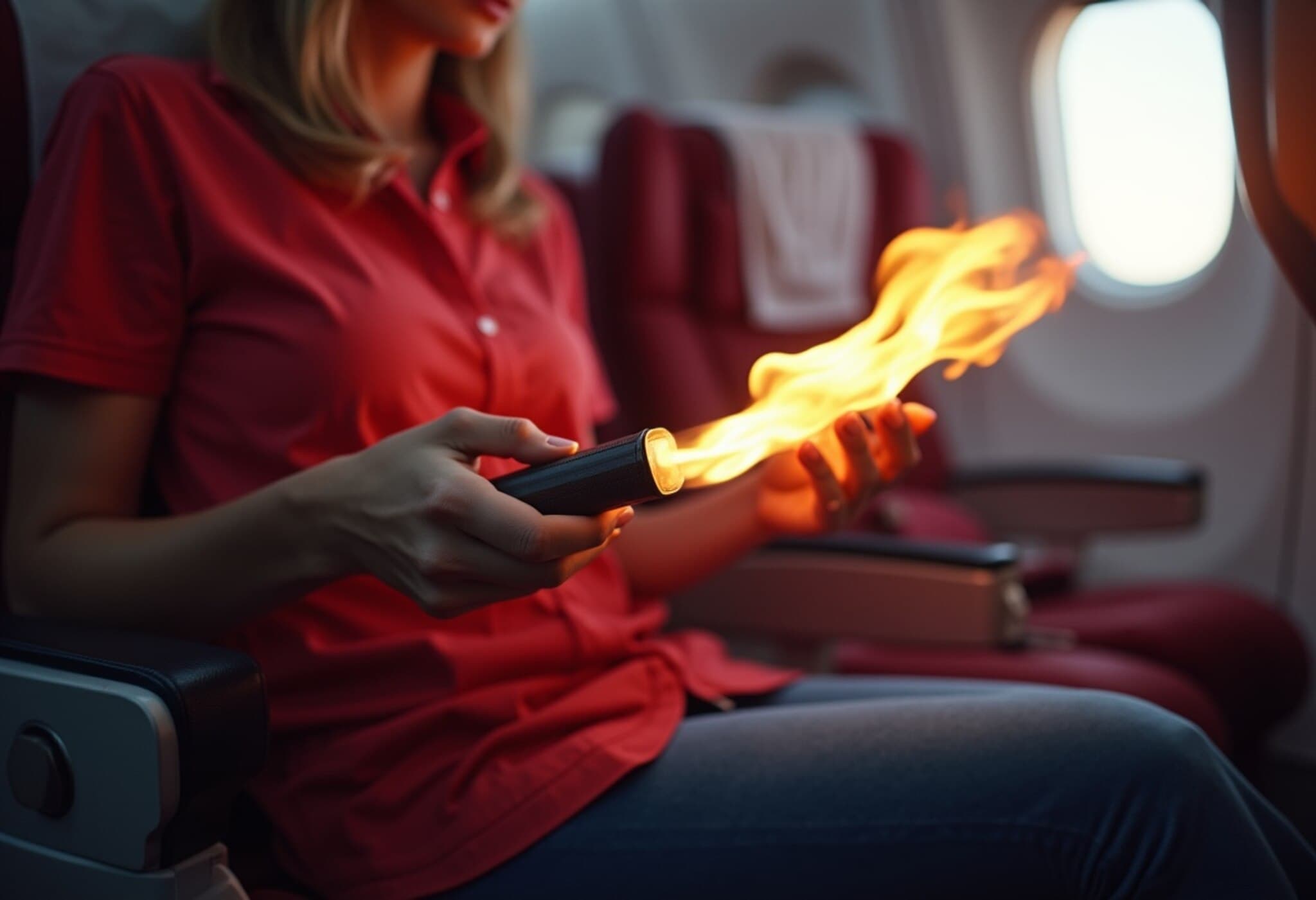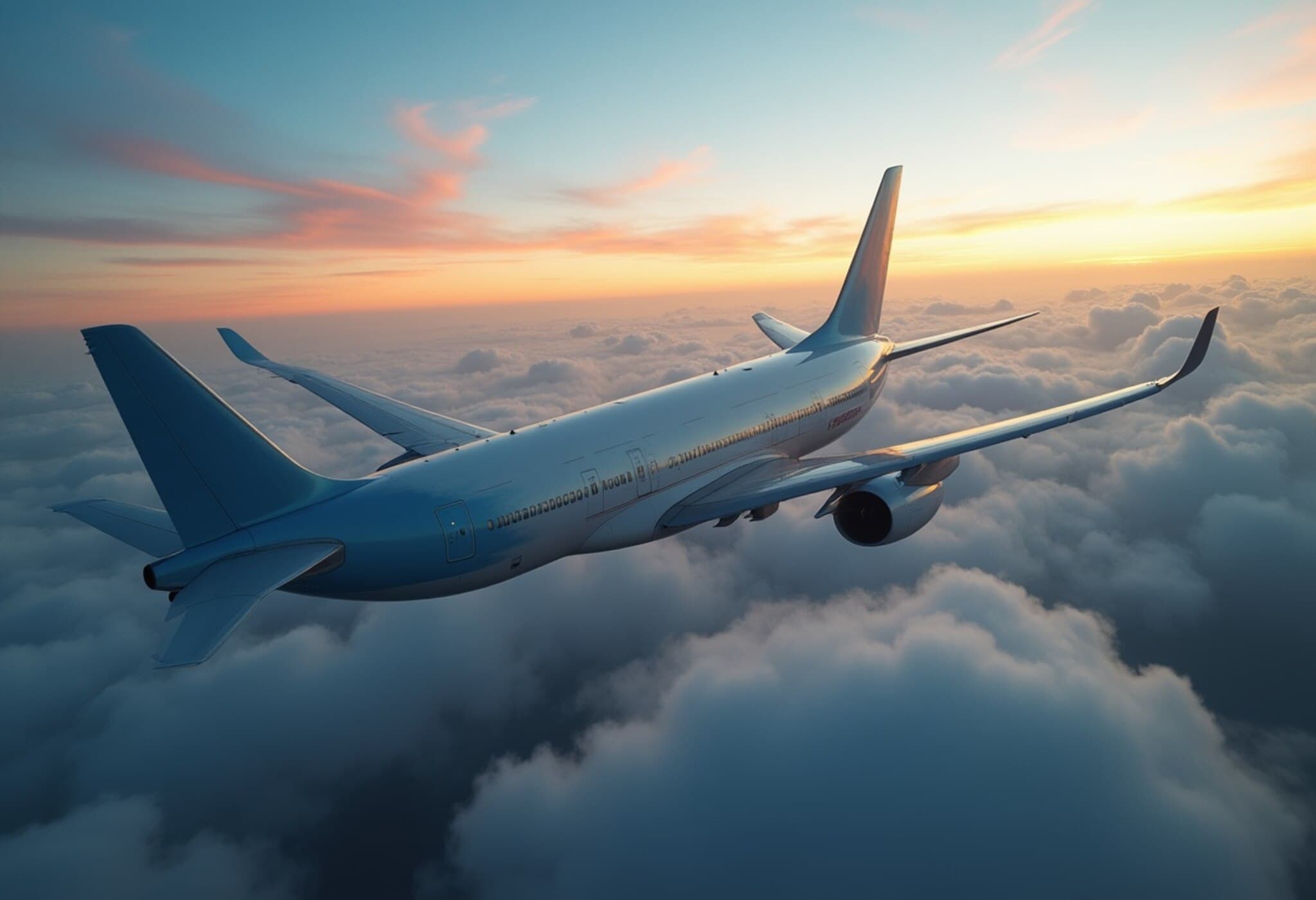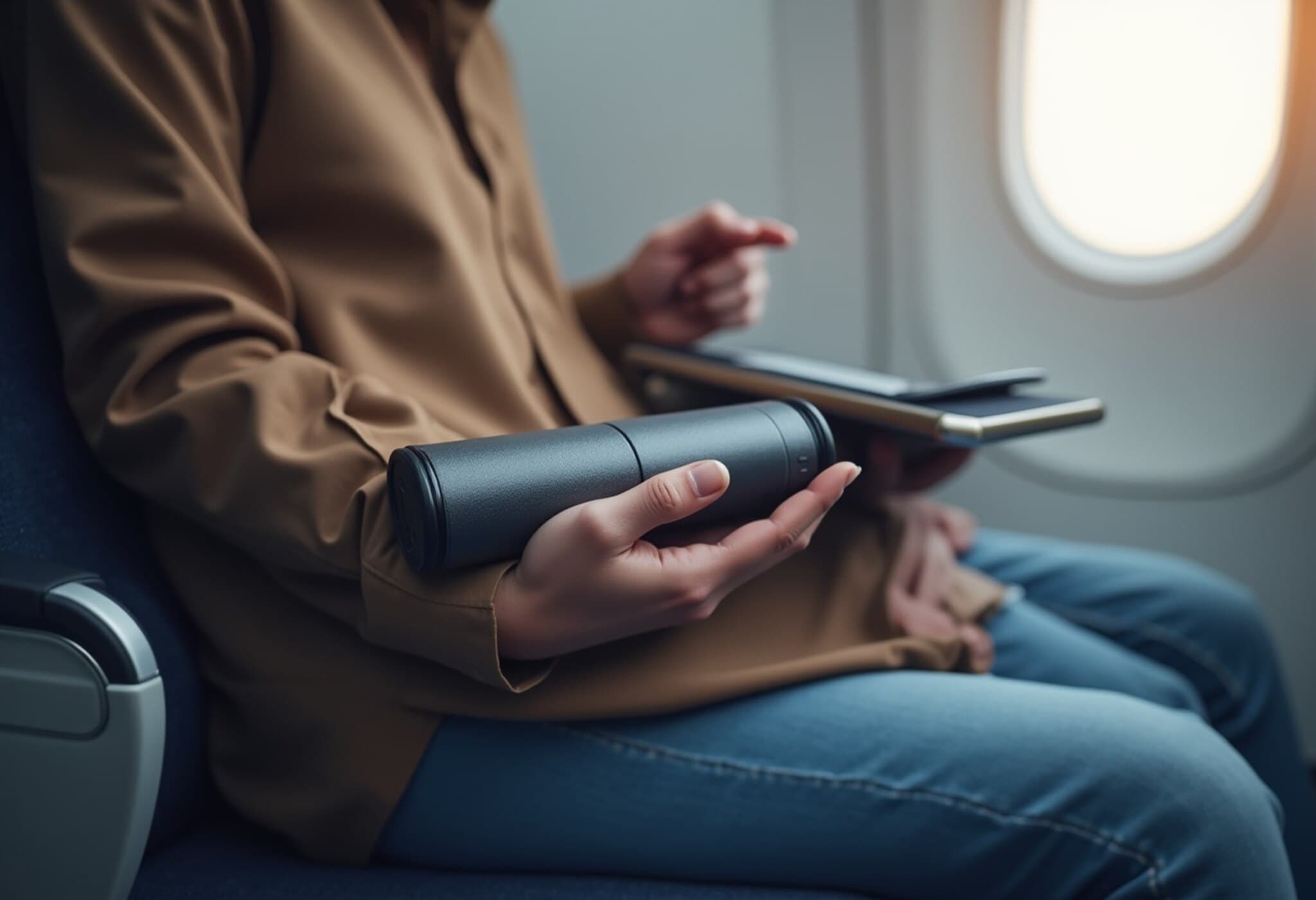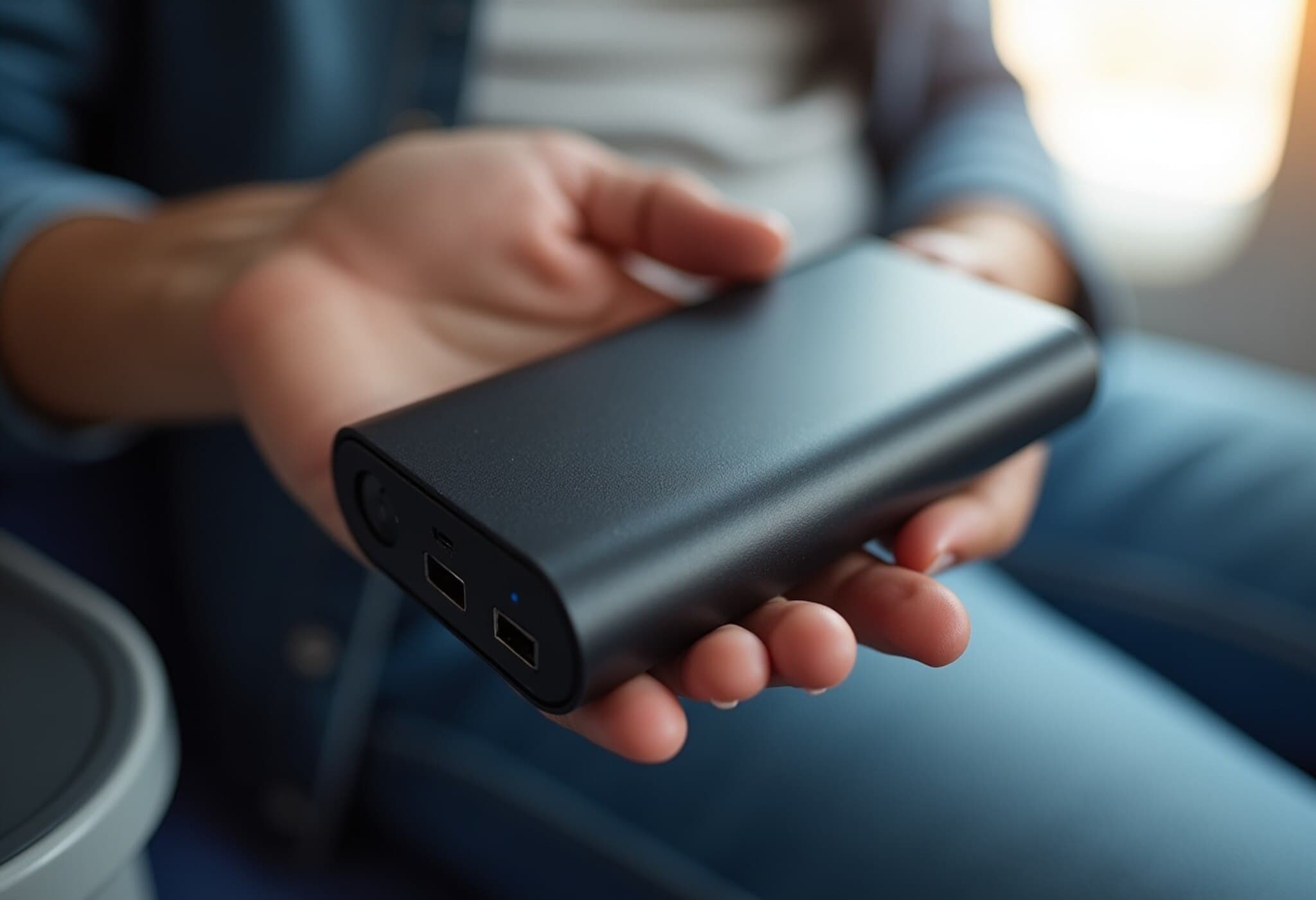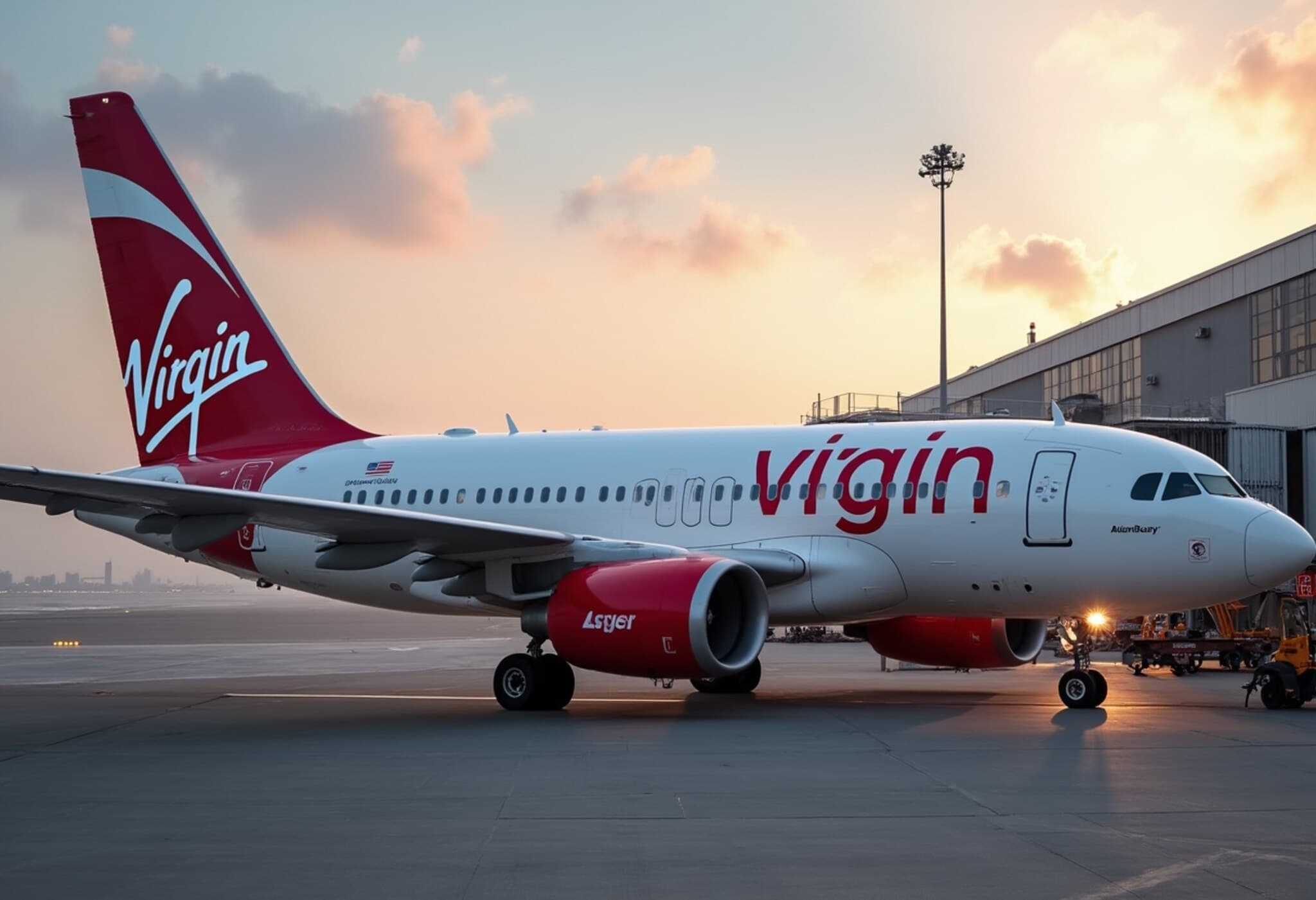Emergency Fire Incident on Virgin Australia Flight Sparks Safety Review
On July 21, 2025, a Virgin Australia flight traveling from Sydney to Hobart was interrupted by an unexpected and dangerous event—a fire broke out in mid-air, traced back to a power bank stored in carry-on luggage. The quick response from the diligent cabin crew ensured the fire was extinguished promptly, allowing the plane to land safely without injuries. Yet, the incident raises pressing concerns about the safety regulations governing lithium-ion batteries onboard flights.
Details of the Incident: Swift Action Prevents Tragedy
The flight, designated VA1528, was descending into Hobart Airport when smoke and flames were observed emanating from an overhead compartment. Cabin crew members immediately acted with training and composure, successfully putting out the fire before landing. Emergency responders were waiting on the tarmac to remove the affected bag and secure the area.
Virgin Australia released a statement emphasizing, “The safety of our guests and crew is always our highest priority. We commend our cabin crew for their quick action and thank emergency services for their professional support.” According to Matt Cocker, Chief Operating Officer of Hobart Airport, all passengers disembarked safely, though one individual was briefly evaluated for possible smoke inhalation.
Policy and Safety Implications: Lithium Battery Risks Under Scrutiny
This incident spotlights the well-known but often underestimated risks associated with lithium-ion batteries—commonly found in power banks and portable electronic devices. Such batteries can malfunction due to internal defects or external damage, leading to overheating, short circuits, or even fires.
The Australian Civil Aviation Safety Authority (CASA) currently mandates that lithium batteries and power banks must be carried exclusively in hand luggage, never in checked bags. CASA warns that “lithium battery fires can be challenging to extinguish,” and as modern travelers routinely carry multiple rechargeable devices, the potential hazards grow.
Data from the Australian Competition and Consumer Commission (ACCC) indicates a surge in lithium battery-related incidents—an alarming 92 percent increase from 2020 to 2022. This upward trend magnifies the urgency to reevaluate airline policies and passenger awareness campaigns.
Global Context and Regulatory Responses
The Hobart incident is not isolated. In January 2025, a catastrophic fire caused by a malfunctioning power bank led to the evacuation of all 176 passengers aboard a South Korean Air Busan Airbus, ultimately destroying the aircraft. This tragedy underscores the devastating potential of such fires when unchecked.
In response, some airlines like Singapore Airlines have implemented more stringent restrictions, even banning power bank usage during flights to safeguard passengers.
Virgin Australia has announced they are collaborating with the Australian Transport Safety Bureau (ATSB) and CASA to investigate the incident comprehensively. The airline also indicated an imminent review and likely tightening of policies related to lithium battery carriage to reinforce safety for all travelers.
Expert Perspective: Balancing Innovation and Safety in Air Travel
Experts in aviation safety emphasize the complex challenge of integrating modern electronic convenience without compromising airplane safety. Lithium-ion technologies power the devices that connect, entertain, and assist millions daily, making outright bans difficult to implement globally.
Effective strategies include enhanced passenger education, robust screening procedures, and improved fire containment technologies onboard aircraft. The aviation industry must continuously adapt to these evolving risks to maintain public trust and avoid incidents that could endanger lives and airline reputations.
Looking Ahead: What Passengers Can Do
- Always carry power banks and spare batteries in your hand luggage.
- Ensure all devices are powered off during flights to minimize risks.
- Use only certified and reputable brands for lithium-ion batteries.
- Report any visible damage or overheating signs before boarding.
- Stay informed about airline regulations on battery carriage.
Editor's Note
The Virgin Australia power bank fire is a stark reminder of the invisible dangers passengers might carry unknowingly. As our reliance on portable electronics grows, so does the responsibility shared between manufacturers, regulators, airlines, and passengers to prevent such hazardous episodes. This incident should serve as a catalyst for rigorous policy review and educational efforts, ensuring the skies remain safe for all.
What measures do you think airlines should prioritize to manage the risks posed by lithium batteries? How can travelers better prepare and protect themselves during flights? These are critical questions as the aviation community seeks sustainable solutions to keep pace with technological advancements.

